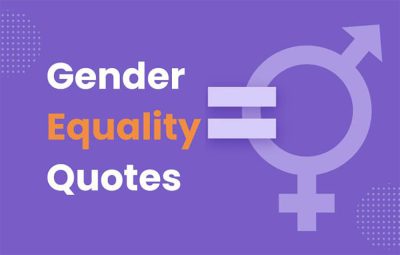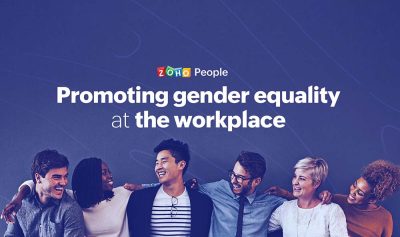FTM In The Workplace: The Quest For Gender Equality
In the workforce, equal chances for all promotes an inclusive environment. Get rid of biases and ensure fair representation of all employees, no matter their race or identity. This kind of place provides a platform for teamwork and innovation. It makes one feel part of a meaningful group. It’s a recipe for harmony.
Rephrase FTM (Female-to-Male) individuals may struggle to fit in at work. Having FTM employees opens up minds to fairness in the work environment. FTM signifies those born as females but identify as males. Accepting and acknowledging their gender identity is a key step for diversity, equity, and inclusion at work. This blog aims to explore these issues and bring out the drive for gender equality at work.
Challenges Faced By FTM Individuals In Professional Settings
FTM individuals deal with issues like bias based on gender, limited understanding of trans-related content, and scarce inclusivity in work scenarios. Disrespectful language and misgendering, contribute to this discomfort. They also go through realities like restrooms, how to dress, and whether to disclose their gender status. The absence of support systems and policies intensify their hurdles. Creating equality at work means the managerial team putting in genuine work to erase ingrained biases and create an environment for FTM individuals to thrive.

Importance Of Promoting Gender Equality In The Workplace:
Boosting gender equality is not only the right thing to do; It’s also smart for business. A workforce with a variety of backgrounds brings plenty of positives: improved morale and productivity, sparking innovation, and making a space where everyone can adapt better.
Workplace Challenges For FTM Individuals
Discrimination And Bias
FTM individuals often face prejudice because of their gender identity. This unfair bias can sadly influence things like job offers, promotions, and even daily interactions. It contributes to a workplace environment that doesn’t feel very welcoming.

Microaggressions And Insensitive Language
Small gestures of bias, many times not meant to harm, contribute to creating an unwelcoming space. Addressing these concerns is vital for cultivating a more inclusive working environment.

Access To Appropriate Restrooms And Changing Facilities
FTM people often find a lack of proper facilities a major hurdle. This impacts their participation in work activities. This issue needs addressing to make workplaces more inclusive.
The Business Case For Gender Equality
Promoting gender equality at work brings diversity, innovation, and top-notch talent. It can lower staff turnover and lift a company’s reputation, as well as supporting sustainable business methods.

Benefits of a Diverse and Inclusive Workforce
In workplaces brimming with diverse cultures, energy flourishes, and fresh ideas bloom. This breathes agility into the company, helping it stay nimble in the rapidly moving business landscape.
Positive Impact on Employee Morale and Productivity
People truly shine and give their best when they feel valued and appreciated. Happy employees play a huge role in boosting a company’s profits.
Creating a More Innovative and Adaptive Work Environment
Diverse viewpoints spark innovation. Businesses that welcome everyone are more adept at adapting to changes. Such companies flourish in constantly shifting business landscapes and seize new opportunities as they emerge.
Legal Protections And Rights For FTM Employees
A broad-minded team gives real wins to firms. It boosts staff spirit, pushes better output, and makes a flexible, fresh workspace. This workspace is more adept at handling hurdles and grabbing chances. For FTM people, knowing anti-bias laws is key. It lets them understand their rights and know the legal scene. This equips them to handle job issues and get rightful help when necessary.

Overview Of Anti-Discrimination Laws
Anti-bias laws shelter FTM employees. These laws ban prejudices linked to gender identity. Both workers and bosses need to understand these laws. It aids in building a just job location.
The Importance Of Workplace Policies Supporting Gender Diversity
Good job rules that directly support varied genders aid non-discrimination. Such rules regulate conduct, lay down rules, and exhibit a pledge to diversity and equality.
Addressing Legal Concerns Related To Gender Transition In The Workplace
Working through legal issues during a gender transition calls for teamwork between the employee and HR. Good talks and a solid plan address legal stuff while making sure everyone’s supportive.
No one doubts the good of a workforce free from harassment. It boosts worker drive, pushes for greater output, and helps in adapting to changes by sparking creative ideas.

Creating A Supportive Workplace Culture
Creating a positive work culture is key to employee happiness. It means making a space where all feel valued and can be themselves. Leaders mold this culture by pushing for inclusivity in rules and actions, creating teamwork, engagement, and better job satisfaction among workers.
The Role Of Management In Fostering An Inclusive Environment
The anti-discrimination laws forbid biases against FTM employees based on gender identity. Employees and employers must be aware of these laws to make the workplace a place where everyone feels safe.
Educating Colleagues About Gender Diversity
Policies that espouse gender diversity in the workplace are key to building a tolerant environment. These policies steer behavior, define standards, and show commitment to favor diversity and equality.
Creating a Supportive Workplace Culture
The employee’s welfare is dependent on a positive workplace culture. It involves creating an environment in which team members are respected and sincerity thrives. The atmosphere is shaped by leadership as it encourages unbiased policies and actions, that promote collaboration and engagement satisfaction for a positive less tense environment.

The Role of Management in Fostering an Inclusive Environment
Leadership defines inclusivity through its tone. Management creates a climate where the employees feel heard and supported by prioritizing diversity and implementing policies. Managers promote an impartial workplace, free of discrimination, and offer equal opportunities to individuals through their engagement in respective matters.
Educating Colleagues About Gender Diversity
Gender diversity is promoted with the help of workshops, resources, and awareness programs. Sharing information dissipates the myth and cultivates sympathy. Open conversations lead to a better comprehension of issues related to FTM challenges, hence a more sympathetic and favorable work environment where gender identity is respected.
Establishing Support Groups and Networks Within the Organization
The development of support groups is important in creating a feeling of belonging. These groups provide a mutual networking platform where employees share personal and professional experiences among themselves. They contribute to building a supportive community that promotes well-being and fosters an accepting work environment.
Overcoming Career Advancement Barriers
As an individual who identifies as FTM navigating challenges requires effort and careful planning. Overcoming these obstacles involves developing skills solving problems and ultimately achieving mobility, in society.

Addressing Stereotypes and Biases in Performance Evaluations
Every organization must avoid stereotyping people. Performances should be evaluated on their work level alone. Management can start by getting rid of misconceptions about appraisals by promoting on merit. It ensures equal opportunities for all.
Strategies for Career Growth and Advancement
You can seek out opportunities that better align with your goals. Find valuable insights and resources that support FTM individuals. Progressing in your career depends on the development of skills, building networks, and seizing opportunities that come your way.
Mentorship and Sponsorship Opportunities
Find mentorship and sponsorship on your professional. It helps to enrich long-term growth by providing valuable perspectives.
Success Stories and Best Practices
Sharing stories and best practices helps in the professional growth of FTM individuals. This enables a cooperative work environment that supports ongoing professional development.

Profiles of Companies with Successful Gender-Inclusive Policies
Many successful companies have made gender policies a part of their operations to promote unison among their workforce. These policies help organizations showcase a harmonious work environment where everyone feels safe and heard.
Personal Narratives of FTM Individuals Who Have Excelled in Their Careers
These representations of FTM individuals succeeding in their professions magnify marginal narratives. These stories are successes, motivate others, and help to remove gender boundaries thus creating a more open-minded climate in the business world.
Highlighting Organizations Leading the Way in Workplace Equality
Highlighting outstanding organizations that lead the way to workplace equality supports a demonstration of exemplars. These path-breakers are paving the way for universal and tolerant approaches, encouraging other firms to follow their suit equality drives.
Resources for FTM Individuals and Employers
Access to helpful materials for the FTM members and employers includes assistance in steering individuals once an organization becomes available. These resources contribute to establishing a more understanding atmosphere in the workplace by providing information on transitioning.

Organizations Providing Support and Information for Workplace Inclusivity
Declaring which organizations avail support and information on workplace equality assists employers. These resources enable the realization of diverse policies allowing companies to design work settings that promote diversity.
Workshops, Training Programs, And Seminars on Gender Diversity
Workshops, training programs, and gender diversity seminars add knowledge. These educational opportunities help people and organizations to develop a sense of awareness that leads towards enhancing workplace inclusivity by providing equal access.
Books and Articles Addressing FTM Experiences in the Workplace
It is insightful to discover books and articles about FTM workplace encounters. These resources provide useful insights, supporting FTM individuals as well as employers in overcoming difficulties and fostering awareness within organizations.
Conclusion
Management should recognize FTM experiences in the workplace for genuine gender equality. Organizations contribute to a diverse professional environment by dismantling biases and promoting equal opportunities. Upholding these principles allows for a positive change where individuals of any gender identity flourish and thrive.

FAQs
How To Address Coworkers Who May Be Resistant or Discriminatory?
Constructive conflict resolution may add a certain empowerment to the FTM community in dealing with resistance or discrimination as well as guiding communication strategies.
What Resources Are Available for FTM Individuals Seeking Workplace Support?
FTM people will have access to services geared towards their unique needs by providing a list of hotlines, relevant organizations, and support groups.
How To Handle Inappropriate Questions About One’s Gender Identity?
Proper recommendations on putting limits and communicating assertively may empower FTM people to deal with inappropriate queries like professionals.

 Basic Packers
Basic Packers Pack & Play
Pack & Play STP
STP